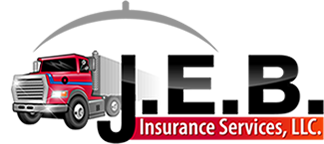The commercial truck industry plays a vital role in the global economy, facilitating the transportation of goods across vast distances. However, despite its significance, the industry faces numerous challenges that are currently impacting its growth and stability. In this blog post, we will explore some of the key factors hurting the commercial truck industry today and highlight J.E.B. Insurance Services, LLC as the go-to provider for all your commercial truck insurance needs. Identifying these challenges, we can gain a better understanding of the issues at hand and work towards finding effective solutions.
- Driver Shortage
One of the most pressing issues plaguing the commercial truck industry is the persistent driver shortage. A combination of factors has contributed to this problem. Aging driver demographics, stringent regulations, long hours on the road, and a lack of attractive incentives have made it difficult to attract and retain qualified drivers. The shortage has resulted in increased freight rates, delayed deliveries, and a strain on existing drivers who are often overworked.
- Rising Fuel Costs
Fuel costs represent a significant expense for commercial truck operators. Fluctuating oil prices and increasing fuel taxes have put additional strain on industry players. Rising fuel costs directly impact profit margins, making it challenging for trucking companies to remain competitive. Additionally, environmental concerns and regulations are pushing the industry towards exploring alternative fuel sources and adopting more fuel-efficient technologies, which require substantial investment.
- Infrastructure Challenges
An inadequate and aging infrastructure network is another major obstacle for the commercial truck industry. Poor road conditions, traffic congestion, and outdated infrastructure systems contribute to increased travel times, higher maintenance costs, and reduced overall efficiency. Furthermore, limited parking availability for trucks poses safety risks and further complicates driver scheduling and compliance with regulations.
- Regulatory Compliance
The commercial truck industry operates within a highly regulated environment. Compliance with regulations such as hours-of-service rules, electronic logging device (ELD) mandates, and safety standards is crucial. While these regulations aim to improve safety and accountability, they can also impose additional administrative burdens and restrict operational flexibility. Achieving compliance often requires significant investments in technology and training, further impacting industry profitability.
- Increasing Insurance Costs
Commercial truck insurance costs have been on the rise in recent years. Factors such as increased accident rates, costly liability claims, and rising medical expenses contribute to higher premiums. Insurance providers often view the commercial truck industry as high-risk, leading to more stringent underwriting practices. These increased insurance costs further strain trucking companies, particularly smaller businesses with limited financial resources.
- Technological Disruptions
Advancements in technology are transforming various industries, and the commercial trucking sector is no exception. While technology can enhance operational efficiency and safety, it also presents challenges. The adoption of new technologies, such as autonomous vehicles and electric trucks, requires significant investments and adaptation. Moreover, concerns about job displacement and the impact of automation on the workforce add complexity to industry discussions.
- Trade and Economic Uncertainty
The commercial truck industry relies heavily on international trade and global economic conditions. Trade disputes, changing tariffs, and geopolitical tensions can disrupt supply chains and impact demand for transportation services. Additionally, economic recessions and fluctuations can lead to reduced consumer spending, affecting the volume of goods transported and the profitability of trucking companies.
Conclusion
The commercial truck industry faces several significant challenges that are impacting its growth and stability. The driver shortage, rising fuel costs, infrastructure limitations, regulatory compliance, increasing insurance costs, technological disruptions, and trade and economic uncertainties all contribute to the industry’s current difficulties. Recognizing and addressing these challenges requires collaboration between industry stakeholders, policymakers, and regulatory bodies. By working together, it is possible to implement solutions that promote a sustainable and thriving commercial truck industry, ensuring the efficient transportation of goods and supporting economic growth. With their specialization in commercial trucking insurance, personalized service, and extensive coverage network, J.E.B. Insurance Services, LLC is the ideal partner for all your commercial truck insurance requirements. J.E.B. Insurance Services, LLC is licensed in Florida, Georgia, North Carolina, South Carolina, Texas, Illinois, Iowa, Tennessee and Texas!


